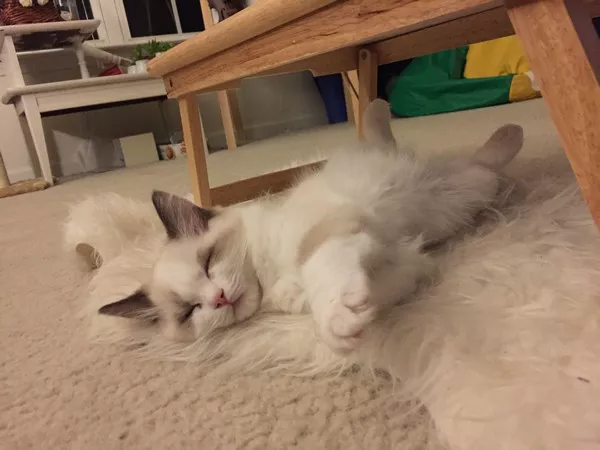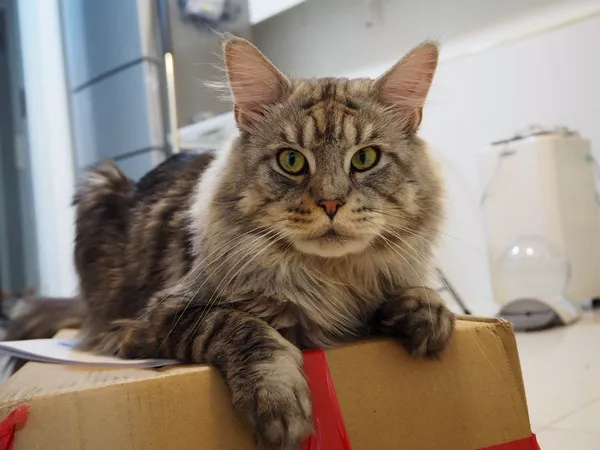Kittens are known for their playful and often mischievous nature, and one common behavior that can take cat owners by surprise is kitten biting. While it may be cute when they’re tiny, kitten biting can become a painful and frustrating issue as they grow. Fortunately, with the right strategies and patience, you can teach your kitten to stop biting and establish a more harmonious relationship. In this article, we’ll explore the reasons behind kitten biting and provide practical tips to curb this behavior.
Understanding Kitten Biting:
Kittens explore the world with their mouths from a young age, and play biting is a natural part of their development. This behavior is typically seen in kittens as they engage in play and learn social skills with their littermates. However, when these playful nips continue into adulthood, they can become problematic. Several reasons contribute to kitten biting:
Teething: Kittens, like human babies, go through teething. Their baby teeth fall out, and adult teeth come in, which can be uncomfortable. Biting may help alleviate teething discomfort.
Play Behavior: Play is essential for kittens’ development, and play fighting is how they practice hunting and social skills. Biting is a part of this play behavior.
Socialization: Kittens use biting to communicate with their littermates and learn social cues. They may carry over this communication style when interacting with humans.
Exploration: Cats are curious by nature, and they explore their surroundings by using their mouths. This exploration can lead to occasional nips.
Attention Seeking: Some kittens may use biting as a way to get their owner’s attention, especially if they’ve received attention when they’ve bitten before.
Tips to Stop Kitten Biting:
Socialization and Playtime: Playtime is crucial for kittens, so provide them with plenty of opportunities for interactive play. Use toys like feather wands and laser pointers to engage their hunting instincts.
1. Teething Toys: Offer appropriate teething toys for your kitten to chew on. These toys can help soothe their gums and reduce the urge to bite.
2. Positive Reinforcement: When your kitten plays gently and refrains from biting, reward them with treats or affection. Positive reinforcement helps them associate gentle play with positive outcomes.
3. Redirect the Behavior: When your kitten starts to bite, redirect their attention to a toy. This not only keeps them engaged but also teaches them that biting human skin is not an acceptable way to play.
4. Use a Firm “No”: When your kitten bites, use a firm “no” to communicate disapproval. However, avoid shouting or using physical punishment, as these actions can cause fear and aggression.
5. Time-Outs: If your kitten continues to bite despite redirection and “no” commands, try implementing short time-outs. Place your kitten in a separate room for a minute to help them understand that biting leads to the end of playtime.
6. Consistency: Be consistent in your responses to biting. All family members should use the same strategies and commands to avoid confusion.
7. Pain-Free Play: If your kitten bites due to overstimulation during play, watch for signs of agitation and end the play session before they become too excited and resort to biting.
8. Consult a Veterinarian: If your kitten’s biting is excessive, aggressive, or associated with other concerning behaviors, consult a veterinarian to rule out underlying medical issues or behavioral problems.
When Biting Becomes a Concern:
In most cases, with patience and consistent training, you can successfully stop kitten biting. However, there are situations where biting may indicate more significant concerns:
Aggressive Behavior: If your kitten’s biting is accompanied by aggressive growling, hissing, or a puffed-up body, it could indicate aggressive behavior. Consult a veterinarian or animal behaviorist for guidance.
Fear or Anxiety: Some kittens may bite out of fear or anxiety. If you suspect this is the case, it’s essential to create a calm and secure environment for your pet and seek professional advice.
Excessive Biting: If your kitten’s biting is excessive, causing injury, or doesn’t respond to training, it’s crucial to consult a veterinarian or animal behaviorist to assess and address the issue.
Unpredictable Behavior: If your kitten’s biting is unpredictable and appears unrelated to play or communication, it may be a sign of a more severe behavioral problem that requires expert evaluation.
In Conclusion:
Kitten biting is a common behavior, but it can be managed and eventually stopped with patience, consistent training, and positive reinforcement. It’s essential to understand the reasons behind your kitten’s biting and tailor your approach to their unique needs. While most cases of kitten biting can be addressed successfully, be aware of situations where biting may signal more severe behavioral issues, and seek professional guidance when necessary. With the right training and care, you can enjoy a loving and bite-free relationship with your feline companion.


























